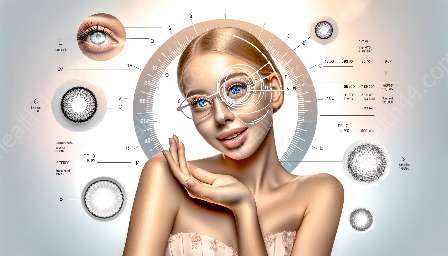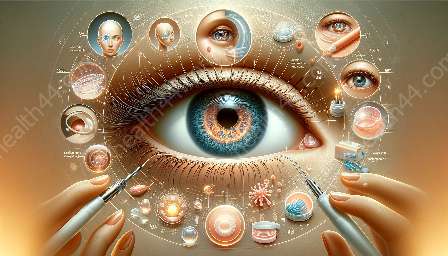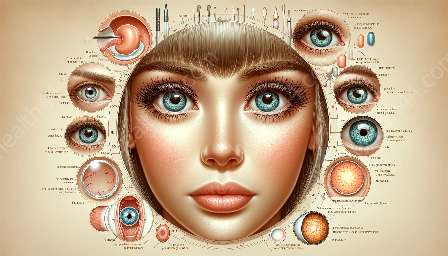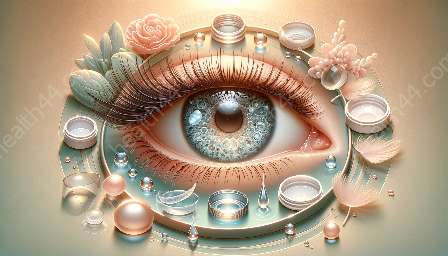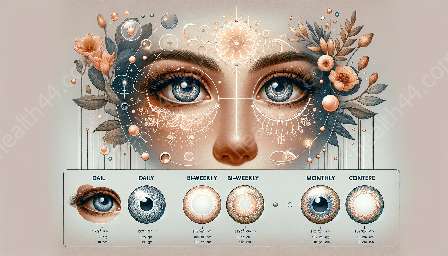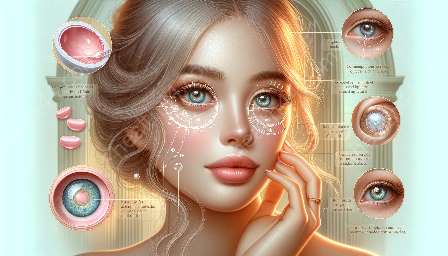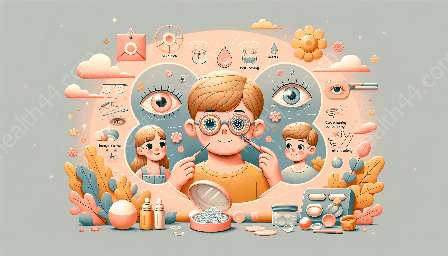As older adults consider contact lens wear, various psychological and emotional factors come into play. Adapting to contact lenses can be influenced by age-related changes, lifestyle adjustments, and personal attitudes. Understanding and addressing these factors are crucial for enhancing comfort and satisfaction with contact lenses among older adults.
The Impact of Aging on Vision and Eye Health
Age-related changes in vision and eye health can significantly influence older adults' adaptation to contact lens wear. Conditions such as presbyopia, dry eye syndrome, and reduced tear production are common among the aging population and can affect the comfort and functionality of contact lenses. Additionally, older adults may have varying degrees of eye sensitivity, which can impact their ability to tolerate contact lenses.
Psychological Barriers to Contact Lens Adoption
Psychological barriers, such as fear of injury or discomfort, can impede older adults' willingness to try contact lenses. Unfamiliarity with the insertion and removal process, as well as concerns about eye infections or corneal abrasions, can create hesitation and resistance to embracing contact lens wear. Addressing these fears through education, demonstration, and reassurance is essential for overcoming psychological barriers and fostering a positive outlook towards contact lenses.
Emotional Factors and Lifestyle Considerations
Emotional factors, including self-image and confidence, play a crucial role in older adults' adaptation to contact lens wear. Some individuals may have concerns about their appearance or the perceived stigma associated with wearing contact lenses at an older age. Additionally, lifestyle considerations, such as maintaining an active social life, participating in recreational activities, and traveling, can influence the desire for hassle-free vision correction options.
Personal Attitudes and Motivation
Personal attitudes and motivation are key determinants of successful adaptation to contact lenses among older adults. Individuals with a positive attitude towards change and a willingness to learn new skills are more likely to embrace contact lens wear effectively. Motivation can stem from the desire for visual freedom, convenience, or improved aesthetics, and it can drive older adults to persist through the initial adjustment period and reap the long-term benefits of contact lenses.
The Role of Education and Support
Educational resources and professional support are essential for addressing psychological and emotional factors associated with contact lens wear in older adults. Eye care practitioners can provide comprehensive information about the benefits, risks, and proper care of contact lenses, alleviating concerns and doubts. Additionally, ongoing support in the form of follow-up appointments, troubleshooting guidance, and lifestyle recommendations can enhance older adults' confidence and satisfaction with their contact lenses.
Recognizing Individual Differences and Customized Solutions
It's important to recognize that older adults have diverse needs, preferences, and comfort levels when it comes to contact lens wear. Customized solutions, such as multifocal or toric lenses, can cater to individual visual requirements and enhance the adaptability of contact lenses among older adults. By acknowledging and addressing individual differences, eye care practitioners can optimize the comfort and performance of contact lenses for their older patients.
Conclusion
Adapting to contact lens wear as an older adult involves navigating various psychological and emotional factors that influence comfort, satisfaction, and overall wellbeing. By addressing age-related changes, psychological barriers, emotional considerations, personal attitudes, and the role of education and support, older adults can successfully embrace contact lenses as a valuable tool for vision correction and enhancement.





